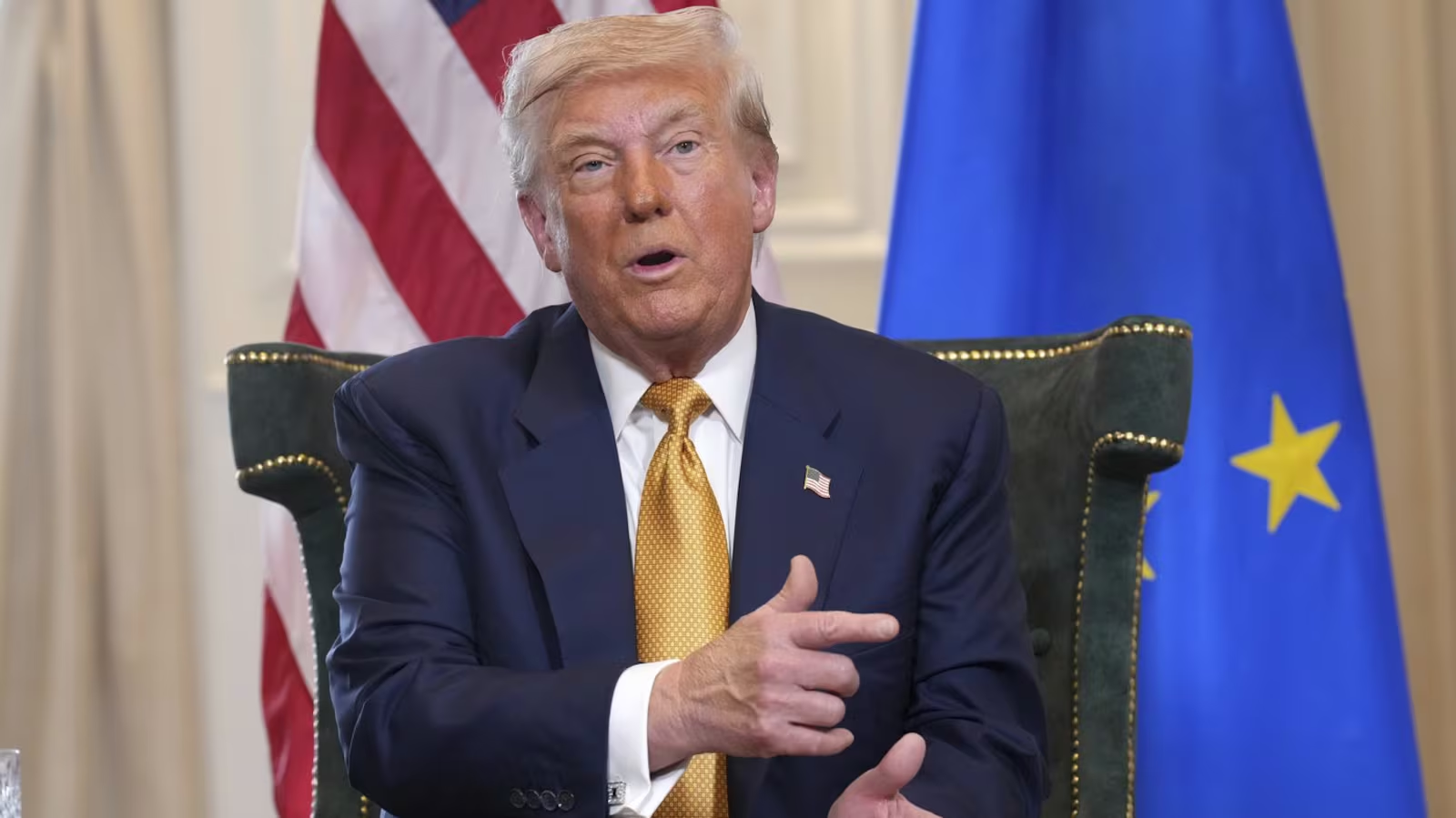U.S. President Donald Trump welcomed British Prime Minister Keir Starmer to Scotland on Monday with a diplomatic tour of his family’s golf properties, even as international tensions over the war in Gaza loomed large over their meeting.
The leaders met at Trump’s Turnberry golf course in southwestern Scotland, one of several luxury properties bearing the Trump name across the country. Starmer is also set to visit another Trump-owned course in Aberdeen, where a third course is scheduled to open next month. While Starmer is not known to be a golfer, the itinerary underscores Trump’s penchant for using golf as both personal branding and geopolitical stagecraft.
Back in 2019, Trump described Turnberry as “perhaps the greatest golf course anywhere in the world” and claimed it “furthers the U.K. relationship.” Now, amid multiple global crises, he appears eager to reinforce that link.
Yet Prime Minister Starmer is expected to shift the focus to urgent humanitarian concerns, particularly in Gaza. He plans to press Trump to use his influence with Israel to allow more aid into the besieged region and to help push for a ceasefire in the ongoing war with Hamas. British officials have called the situation in Gaza one of “unspeakable suffering and starvation,” and over the weekend Starmer confirmed the U.K. would join a Jordan-led aid airdrop effort after Israel temporarily eased some restrictions.
Despite this, British Business Secretary Jonathan Reynolds acknowledged that only the U.S. has enough leverage to compel significant change. Still, when asked about the Gaza crisis Sunday evening, Trump offered little in the way of diplomatic resolve, instead expressing frustration that he had not received credit for past aid efforts. “It’s terrible. You really at least want to have somebody say, ‘Thank you,’” he remarked. “It makes you feel a little bad when you do that” without recognition.
Back home, Starmer is facing growing pressure from his Labour Party to formally recognize a Palestinian state — a move that the U.S. and Israel strongly oppose. Starmer has reiterated the U.K.’s long-standing support for Palestinian statehood but maintains that recognition must come as part of a comprehensive two-state solution.
The two leaders are also expected to touch on efforts to mediate an end to Russia’s war in Ukraine. According to Starmer’s office, they plan to explore ways to bring Russian President Vladimir Putin to the negotiating table within the next 50 days. Trump, who has previously criticized Ukrainian President Volodymyr Zelenskyy for not showing enough public gratitude toward U.S. aid, has recently shifted tone, taking a more critical stance against Russia and Putin.
On Tuesday, Trump is set to officially open his new Aberdeen golf course with a ribbon-cutting ceremony. The course, which opens to the public on August 13, is already accepting tee time reservations — and is banking on a boost from the presidential visit. Meanwhile, protests have been organized in Balmedie near Trump’s existing Aberdeen course, following weekend demonstrations across Scotland opposing his trip.
On trade, Trump and Starmer have enjoyed more common ground. While China initially hit back at Trump’s tariffs with retaliatory taxes, the U.K. has taken a more cooperative approach. Starmer has made a concerted effort to maintain strong ties with Trump, including a joint announcement in May on a new trade framework. That agreement, finalized during the G7 summit in Canada, reduced tariffs on U.K. auto-sector goods and eliminated duties on aerospace exports, while increasing U.K. imports of U.S. beef.
Trump also met with European Commission President Ursula von der Leyen on Sunday at Turnberry, announcing a separate trade framework that imposes 15% tariffs on most goods between the U.S. and EU, though several key details remain unresolved.
Despite Trump’s long-standing push to shrink trade deficits, the U.S. actually recorded an $11.4 billion surplus with the U.K. last year — a number that may grow, according to Census Bureau figures. Still, some trade disputes linger. British steel, for instance, is still subject to a 25% U.S. tariff despite being included in the May deal, and discussions are ongoing. Business Secretary Reynolds said negotiations are progressing daily but warned against expecting an immediate breakthrough.
Scotland’s First Minister John Swinney is also expected to appeal to Trump directly, requesting the removal of the 10% tariff on Scotch whisky. Swinney said the spirit’s “uniqueness” justifies special consideration.
As the two leaders continue navigating delicate issues — from Gaza to Ukraine to tariffs — Starmer’s strategy of maintaining a friendly rapport with Trump appears to be paying off. Speaking during the G7, Trump offered his own endorsement of the alliance: “The U.K. is very well-protected. You know why? Because I like them — that’s their ultimate protection.”

